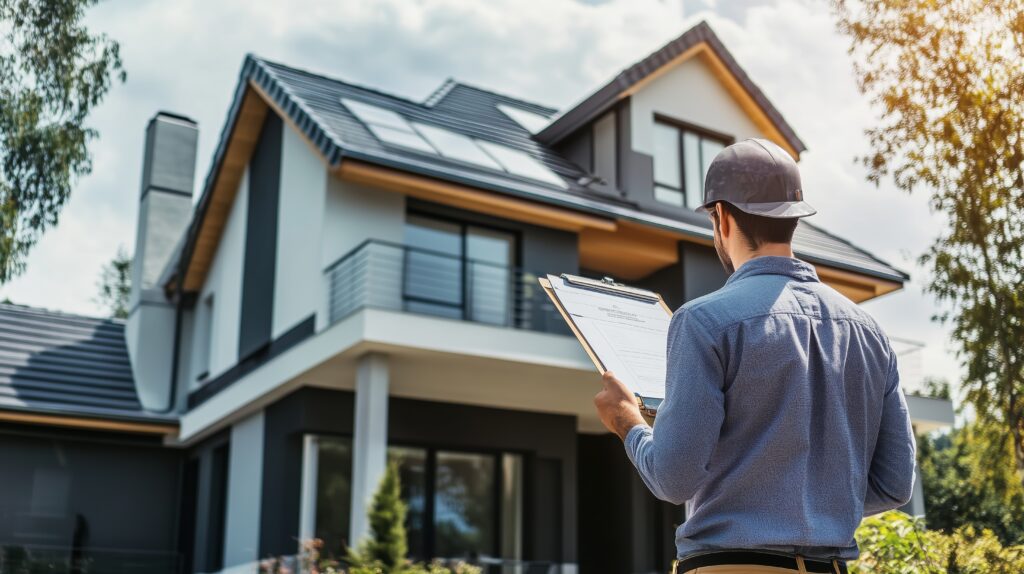Building Inspections | The Complete NSW Buyer’s Guide
When buying a property in New South Wales, one of the most critical steps you can take is to conduct a thorough building inspection. This process not only safeguards your investment but also ensures that you are fully informed about the condition of the property. In this article, we will explore the importance of these inspections, what they entail, when they should be completed and how they can protect you from unforeseen issues.
Understanding building inspections
A building inspection is a detailed examination of a property’s condition, typically conducted by a qualified and licensed inspector. The inspection covers various aspects of the property, including the structural integrity, electrical systems, plumbing, and potential pest infestations. The goal is to identify any existing problems or potential future issues that could affect the property’s value or your safety.

The importance of building inspections
1. Uncover hidden issues
One of the primary reasons for conducting a building inspection is to uncover any hidden issues that may not be immediately apparent. These can include structural defects, water damage, or pest infestations. Identifying these problems early can save you from costly repairs down the line.
2. Negotiate better terms
Armed with the information from a building inspection, you can negotiate better terms with the seller. If significant issues are found, you may be able to request repairs, a reduction in the purchase price, or even withdraw from the purchase if the problems are too severe (if you are still within the cooling off period).
3. Ensure safety and compliance
A building inspection ensures that the property complies with current safety standards and building codes. This is particularly important for older properties that may not meet modern regulations. Ensuring compliance not only protects your investment but also ensures the safety of you and your family.
4. Plan for future maintenance
Understanding the current condition of the property allows you to plan for future maintenance and repairs. This foresight can help you budget accordingly and avoid unexpected expenses.
What to expect during a building inspection
During a building inspection, the inspector will conduct a comprehensive assessment of the property. This typically includes:
- Structural assessment: Checking the foundation, walls, roof, and other structural components for integrity and stability.
- Electrical systems: Ensuring that wiring, outlets, and electrical panels are safe and up to code.
- Plumbing: Inspecting pipes, fixtures, and drainage systems for leaks or damage.
- Pest inspection: Looking for signs of termites or other pests that could cause damage.
- Interior and exterior examination: Assessing the condition of floors, ceilings, windows, and doors, as well as the exterior of the building.
Choosing the right inspector
Selecting a qualified and experienced building inspector is crucial.
Look for inspectors who are licensed and have a good reputation in the industry. They should provide a detailed report with photographs and descriptions of any issues found. They should also be available to chat through the report with you to ensure you fully understand their findings. Remember: You are ultimately paying for their building expertise and so, if you have any questions about what is meant by anything in their report, they will be the best (and most qualified) people to clarify your concerns.
When should the inspection be completed?
Typically, all lawyers (including us) will recommend that a building inspection be completed before you sign and exchange contracts. However, we do not live under a rock at Hindsight Legal Advisers and we know that for many properties, buyers are simply not afforded the luxury of waiting for an inspection to be completed before they sign a contract.
If this sounds like you (or if you are reading this article after you have signed the contract), you must ensure that you complete the inspection (at the very latest) before the expiry of the cooling off period.
Why? Because, if you do identify any serious issues in the building inpsection report during the cooling off period, you have the ability to terminate the contract before the cooling off period expires (Note: In NSW, a buy has to pay the seller a ‘penalty’ of 0.25% of the purchase price if they terminate the contract during the cooling off period). Once the cooling off period expires (and unless the contract is subject to a building inspection condition – which is rare in NSW), the buyer will be obliged to complete the purchase despite the existence of the issues identified in the building inspection report.
What does this all mean for you as a property buyer?
A building inspection is an essential step in the property buying process in NSW. It provides peace of mind, ensures safety, and can save you from unexpected costs.
By investing in a building inspection, you are making a wise decision that protects your financial and personal well-being.
When buying a property, don’t overlook the importance of a building inspection. It is a small investment that can make a significant difference in your property purchase experience.
Need help buying property?
If you need a lawyer to act for you in relation to the purchase of property, please check out our Buying a Property Information Centre, where you can get more information about our conveyancing services and get an instant quote.
Alternatively, you can give us a call, send us a message or book in a time for us to call you.
Table of Contents
Posted in Buying Property

